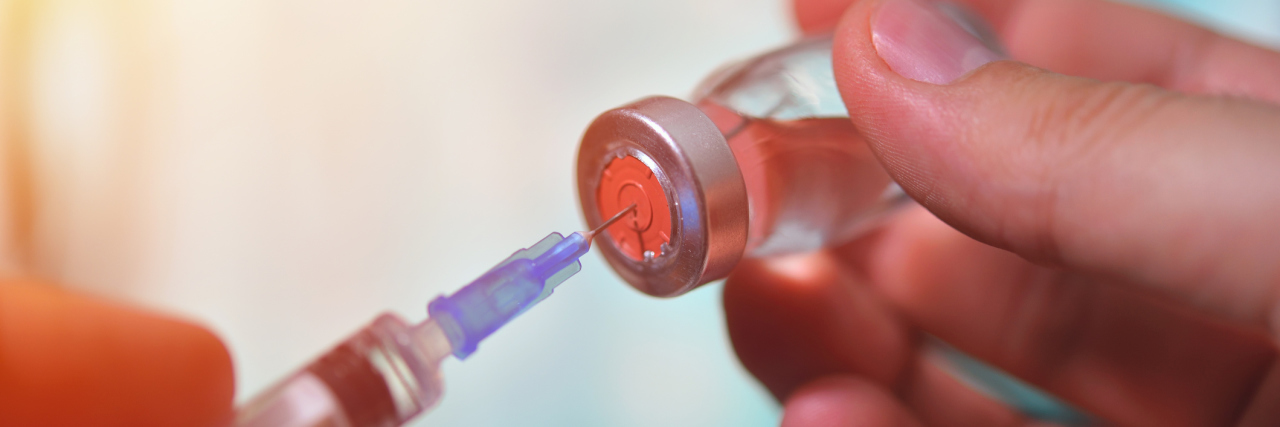An 8-year-old’s parents are suing his school after administrators said he couldn’t bring his insulin to school and administer it himself.
Mom Caly Watkins filed a lawsuit against Jordan School District in Salt Lake County this month in the U.S. District Court of Utah, claiming school administrators are breaking the law by not allowing her son (called K.W. in court documents) to carry medical supplies at school. The lawsuit comes after years of negotiations between the Watkins family and the school over K’s insulin, which resulted in him being placed on “home and hospital” status. This is typically reserved for kids too ill to attend school and essentially prevents him from going to class.
The troubles have been ongoing since K’s kindergarten year. Watkins told KUTV last year she tried to get the school, Canyon Butterfield Elementary, to implement a 504 plan, which would allocated resources to provide a nurse to help him administer his insulin shots. Instead, the school suggested training a janitor or custodian to administer his insulin shots. So Watkins started sending K to school with pre-filled syringes he could administer himself.
The school didn’t like him bringing the pre-filled syringes in his bag, so the 504 was finally put in place — but Watkins said the nurse who helped K with his shots almost made mistakes with dosages that could have been fatal.
“I instructed the nurse to draw up one unit, she sent me a picture with [a syringe filled to] 10 units,” Watkins told KUTV. “I don’t even think he could recover from that.”
Watkins again tried to negotiate with the school to allow K to bring his own pre-filled syringes and administer them himself, but they couldn’t come to an agreement. Administrators asked the syringes come with a signed label from the pharmacist, which is possible for those who use ready-made syringes, but K uses a special diluted formulation. A pharmacist can’t make this formulation — the Watkins do it at home using wholesale insulin, according to the Salt Lake Tribune.
School administrators also suggested leaving the insulin in a locked cabinet in the school office so other kids couldn’t get into it, but Watkins said that was too far away and K might not be able to get to it in a timely manner.
In September 2018, the start of K’s second grade year, an agreement still hadn’t been reached. Administrators told Watkins unless she signed a form giving the school the right to contact K’s doctors and pharmacy, he had to leave the school, according to KUTV. She refused to sign because she said the school tried to change the doctor’s orders without her permission. K is now on “home and hospital” status and has been out of school all year.
Aaron Kinikini, the director of the Disability Law Center, which is representing the family, told the Salt Lake City Tribune according to Utah law, public schools are required to allow students to bring and self-administer “diabetes medication.” The law doesn’t have any requirements about labeling. The Americans With Disabilities Act also requires schools to make accommodations for students with disabilities.
“It’s just heartbreaking,” Watkins told the Salt Lake City Tribune. “He wants to go to school. It’s frustrating because he’s perfectly healthy to do so.”
The Mighty reached out to Jordan School District for comment, but a spokesperson said the district is unable to comment on pending litigation. The Mighty reached out to Watkins for comment and has yet to hear back.
Type 1 diabetes is a chronic autoimmune disease in which the pancreas doesn’t produce insulin, so people with the condition must give themselves injections of insulin via a syringe, pen injector or pump. Several times a day, they need to check their blood sugar levels and take enough insulin to prevent their levels from going too low or high. If not properly managed, it can be fatal.
Other young students with diabetes have struggled to get accommodations — earlier this year, mom Emma Garvey shared a Facebook post alleging her daughter had been kicked out of her private school after she questioned the school’s ability to help her manage her diabetes.
In addition to the physical challenges of diabetes, people’s attitudes towards your diagnosis can impact how you experience the condition. It’s important for people to have compassion for what you’re going through, and especially for kids, understand they want to participate in life and school like other kids.
Mighty contributor Liv M. explained living with diabetes as a child meant she always felt different than others her age, and had to face misconceptions about how to treat the condition.
“Being diagnosed can feel like a very alienating thing,” she wrote. “Suddenly everyone thinks they know what you can and cannot eat. My parents were educated, but complete strangers suddenly thought that they had the right to comment on how I was managing my disease.”
For more insight on diabetes from others who have been there, check out these stories from our Mighty community:
Getty photo by Daniel Chetroni

